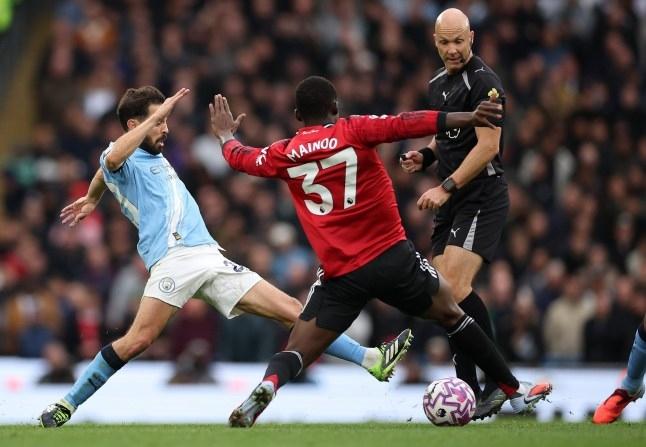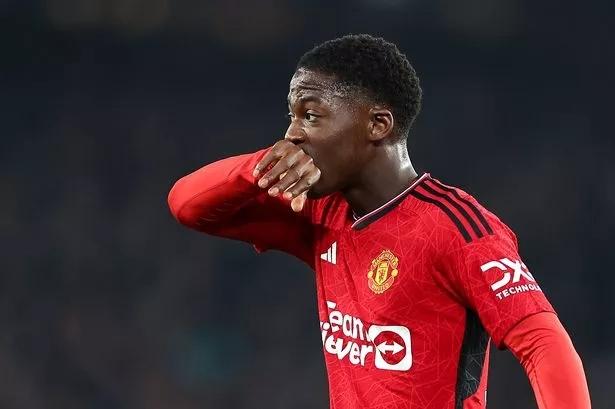Manchester United suffered another setback with a 0-3 defeat against Man City, and Ruben Amorim was heavily criticized for benching the promising youngster Kobbie Mainoo, despite his strong showing after entering the game.
Owen Hargreaves spoke out against coach Ruben Amorim following Manchester United’s 0-3 loss to Manchester City at Etihad. The former midfielder called Amorim’s decision to start Kobbie Mainoo on the bench a major mistake.
In the Manchester derby, MU struggled to make an impact against Pep Guardiola’s side. Phil Foden opened the scoring with a header in the first half, and Erling Haaland completed a second-half brace to seal a convincing victory for City. Amorim stuck with Bruno Fernandes partnering Manuel Ugarte in midfield, while Mainoo remained sidelined. Only in the 62nd minute was the 20-year-old brought on, immediately making a strong impression.

Hargreaves commented that Mainoo was the standout performer for MU after coming on: “In just half an hour, he outshone everyone else. I don’t understand why he wasn’t in the starting lineup. If Amorim wants to improve, he must build the midfield around Mainoo.”
He also argued that the current setup is ineffective, with Sesko lacking the dynamism to compete with strikers like Haaland, and Bruno Fernandes unsuited for the defensive midfield role. Hargreaves suggested Amorim should boldly make changes, starting Mainoo, positioning Mbeumo up front, and having Cunha and Bruno play as number 10s.

However, after the match, Amorim stood by his philosophy. The Portuguese coach acknowledged fans’ frustration but said he would not change the formation solely to fit Mainoo. “I’m trying to imagine different scenarios. When you lose, you have to accept criticism. But I don’t want to deceive myself, we need consistency,” Amorim said.
This heavy defeat has intensified criticism towards Amorim, especially as MU still struggles to find the best formula for their midfield. His steadfastness might help stabilize the squad in the long run, but without timely adjustments, public pressure and the risk of declining performance could quickly threaten Amorim’s coaching position.























 Links
Links
 Contact
Contact
 App
App


